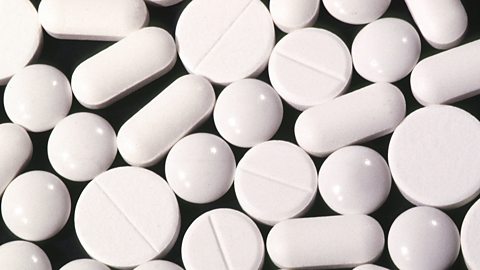Seven ways to deal with winter
Your health and wellbeing cannot be neglected. We are all particularly at risk in the winter months as the temperatures drop outside and cases of flu rise. Seasonal Affective Disorder (SAD, or winter depression), has been studied for decades, and is characterised by a persistent low mood, lethargy and a loss of interest and pleasure in everyday life. We've drawn together a list of steps we can all take in the darker months of the year, to help see us through to the spring time.

1. Keep an eye on your vitamin levels
One of the easiest things to let slip during the winter months, particularly with a change of the types of foods you eat over the festive period, are the levels of essential vitamins and nutrients you are getting. Perhaps one of the more difficult to notice out of all the vitamins, is the amount of Vitamin D in your system. Vitamin D assists in the uptake of calcium, which keeps bones healthy and strong, but it also plays a key role in the nervous, muscular and immune systems – it’s an important molecule. Despite this, Vitamin D is found in very few foods, and is instead normally produced by our bodies in response to direct exposure of the skin to sunlight. In winter, however, the shorter days and lower sun (coupled with a general reluctance to leave the warmth of the indoors) can , effecting between 30-50% of adults. The deficiency is more common in darker skins, with higher levels of melanin. A simple blood test with your GP will identify if you have any vitamin deficiencies and supplements can be taken if necessary. over the winter months.

Should you take a Vitamin D tablet every day?
Vitamin D is the rising star of the supplement world, but is it that good for you?
2. Moisturise to stop your skin getting too dry
The cold air of winter brings with it a drop in humidity outdoors, and this is mirrored indoors with central heating systems that dry out the air and, in turn, your skin. Low air humidity means there’s less water vapour in the air around your skin than in your skin itself, which draws the water out of the top layer of skin, drying it out. It’s a similar process to how washing dries on a hot day; there’s more water in the clothes than the surrounding air, so water moves out of the clothes into the air, drying. In addition to this, constant movement between warm and cold environments expands and contracts the skin, causing it to crack and peel amounting to a number of skin problems.
Applying plenty of a non-alcohol moisturiser to problem areas will help replenish lost water to the dried out skin, and remaining well hydrated during the winter is often quoted as a method of preventing dry winter skin. Alternatively, adding an air humidifier to your winter arsenal will ensure that your home remains cosy but doesn’t lack in moisture.

Don't forget to keep washing your hands, particularly before eating food.
3. Wash your hands to try and ward off bugs
Because the influenza virus is so quick to mutate, every year a new vaccine is rolled out in preparation for the strain that will hit the following winter. In 2017 the vaccine proved less effective than usual in the Australian population, who consequently dealt with the worst flu season since the 2009 swine flu pandemic. The best advice with flu is always preventative; your immune system strong and washing your hands will stem the spread of the virus. If you do come down with it, there’s not much to be done with flu, aside from keeping hydrated and well rested.
4. Use beeswax or coconut oil on your lips
One of the most common instances of dry skin is chapped or cracked lips. On top of being exposed and directly facing the biting wind, your lips don’t have the same protective outer layer as the rest of your skin, and are one of the few areas lacking in sweat glands, which usually assist in keeping your skin healthy and hydrated.
A popular fix for chapped lips is the application of petroleum jellies, but these often do more harm than good. The petroleum forms a barrier that water cannot pass through; while this prevents further dehydration it also prevents rehydration, not allowing the skin to heal and prolonging the problem. It provides a quick, temporary fix, but for a better solution to the chapped lips of winter, products containing natural alternatives such as beeswax or coconut oil will protect your lips while still allowing moisture in to heal them.

The best workout for your health
Dr Mark Porter finds out what the best workout is for all-round health benefits.

5. Stay active and don't punish yourself over gaining weight
It makes sense that we put on weight over the coldest months; body fat provides a source of insulation and is also burned for energy during the cold. In fact, a model developed by a that animals are hardwired to eat more food during the winter months if it’s available. Storing food as fat was used as an insurance against the possibility of failing food resources before a time when food was just a click of a button away.
We might be genetically disposed to put on some winter weight, but you can combat this by staying active. Go to the gym (even if it’s just once a week), your co-worker was talking about, go join a local friendly football team... Getting outside and active (even just for the occasional walk) during the winter will help shift those extra pounds, improve circulation (better for keeping you warm) and improve mental wellbeing.

6. Wear a hat and wrap up warm
Have you ever heard that you'll lose half of your body heat through your head if you don't wear a hat when outside? this largely to be a myth, on the basis that heat loss is related to exposed surface area, and that comprising the average exposed head should therefore be responsible for a similar amount of heat loss. The logic here is that, yes, you do lose heat from your head, but you’d lose a similar amount from your legs if you walked around in the winter in swimming trunks.
Staying hydrated is one of the best things you can do for your body.
However, don’t be too quick to throw away all your beanies; while ‘half’ might be an overstatement, that the head is not the most heat efficient appendage. There’s very little fatty insulation around the skull and less coverage by the blood vessels responsible for heat regulation. And as long as that 7-10% is exposed, you’ll be losing precious warmth to the winter winds.
7. Keep an eye on how much water you're having
Staying hydrated is one of the best things you can do for your body, especially during winter. Unlike in summer, when the hot weather makes you thirsty and desperate for a drink, in winter taking in enough water is often forgotten about. Yet it remains as important as ever, if not more so. Staying hydrated, either through eating enough fresh fruit and vegetables with water content, or drinking glasses of water, has beneficial health effects in many of the areas we’ve already mentioned, from keeping skin and lips healthy and moisturised, to combating the flu and providing a real . In fact, starting your day off with a glass of water is a quick way to tell your body ‘OK, I’m awake now’ and kick start it for the day.
.
-
![]()
Dr Mark Porter demystifies health issues, bringing clarity to conflicting advice.
-
![]()
Warm the body, and the soul, with these hot tips for staying toasty.
-
![]()
Geoff Bird finds out why we should all make time to be more idle in winter.
-
![]()
All in the Mind
Programme exploring the limits and potential of the human mind.




